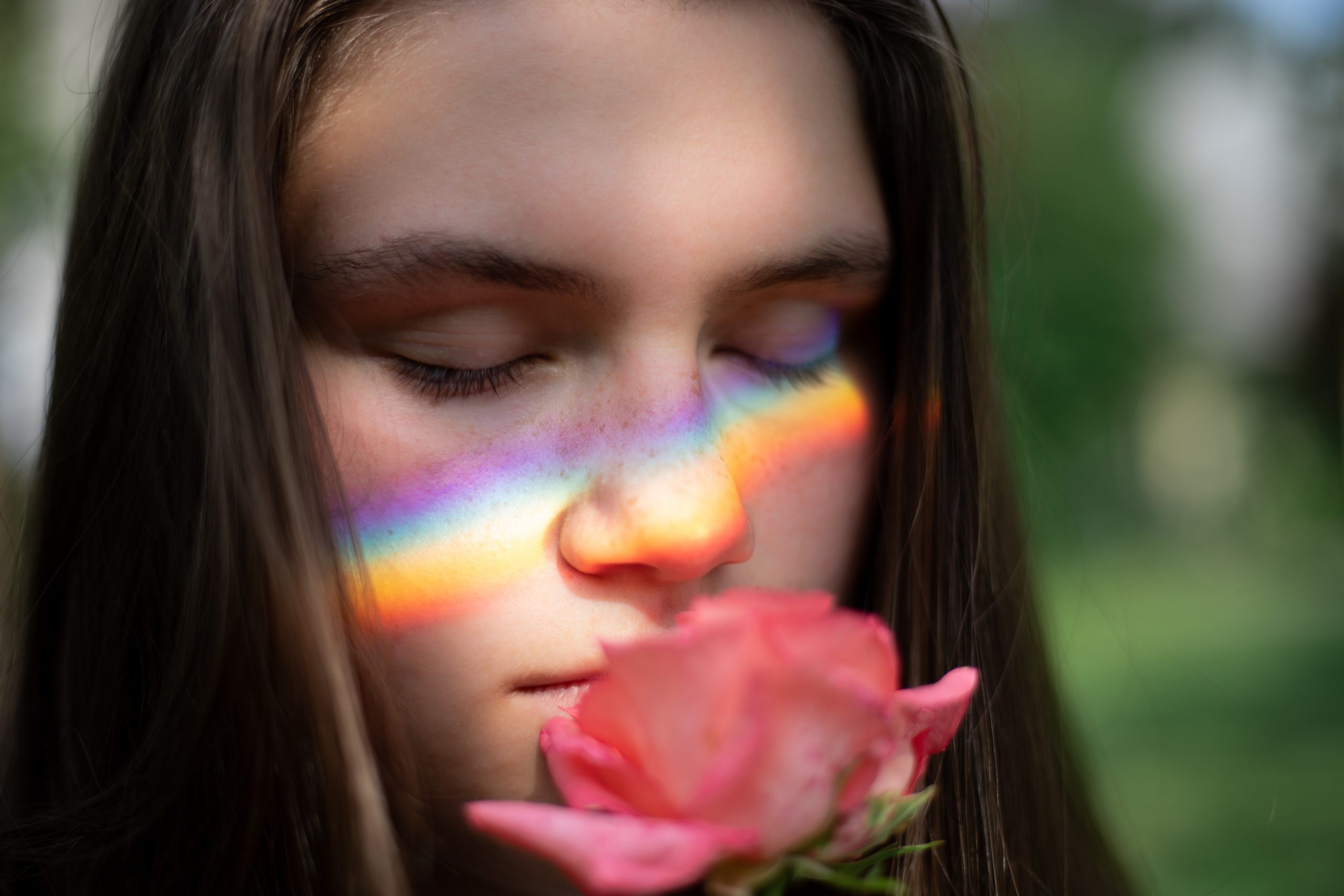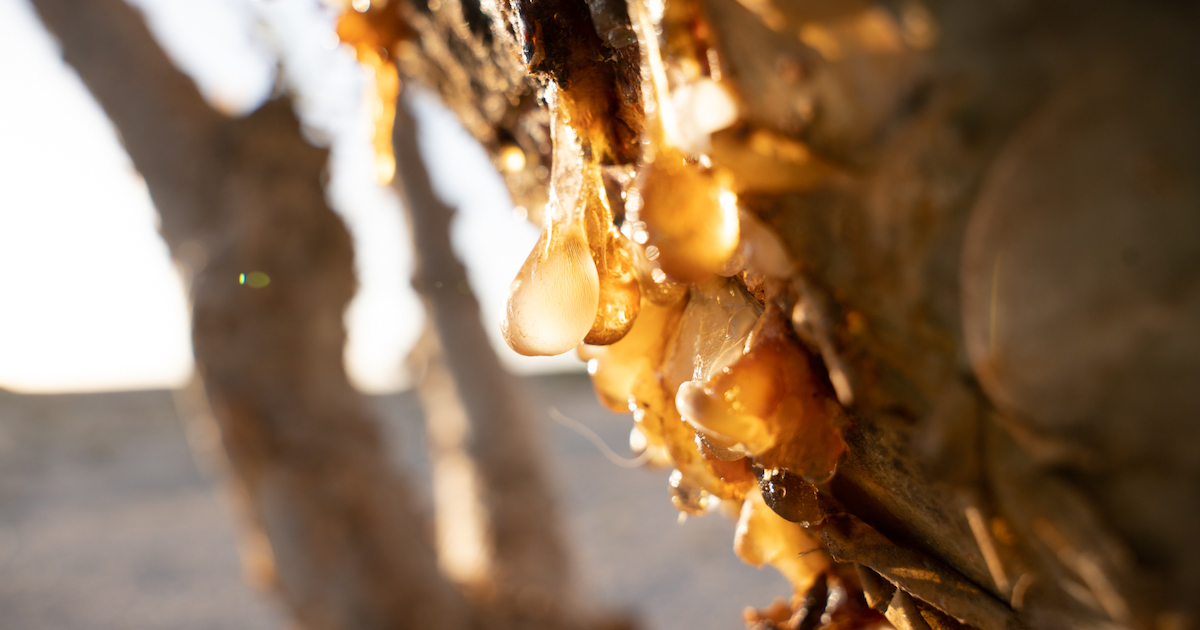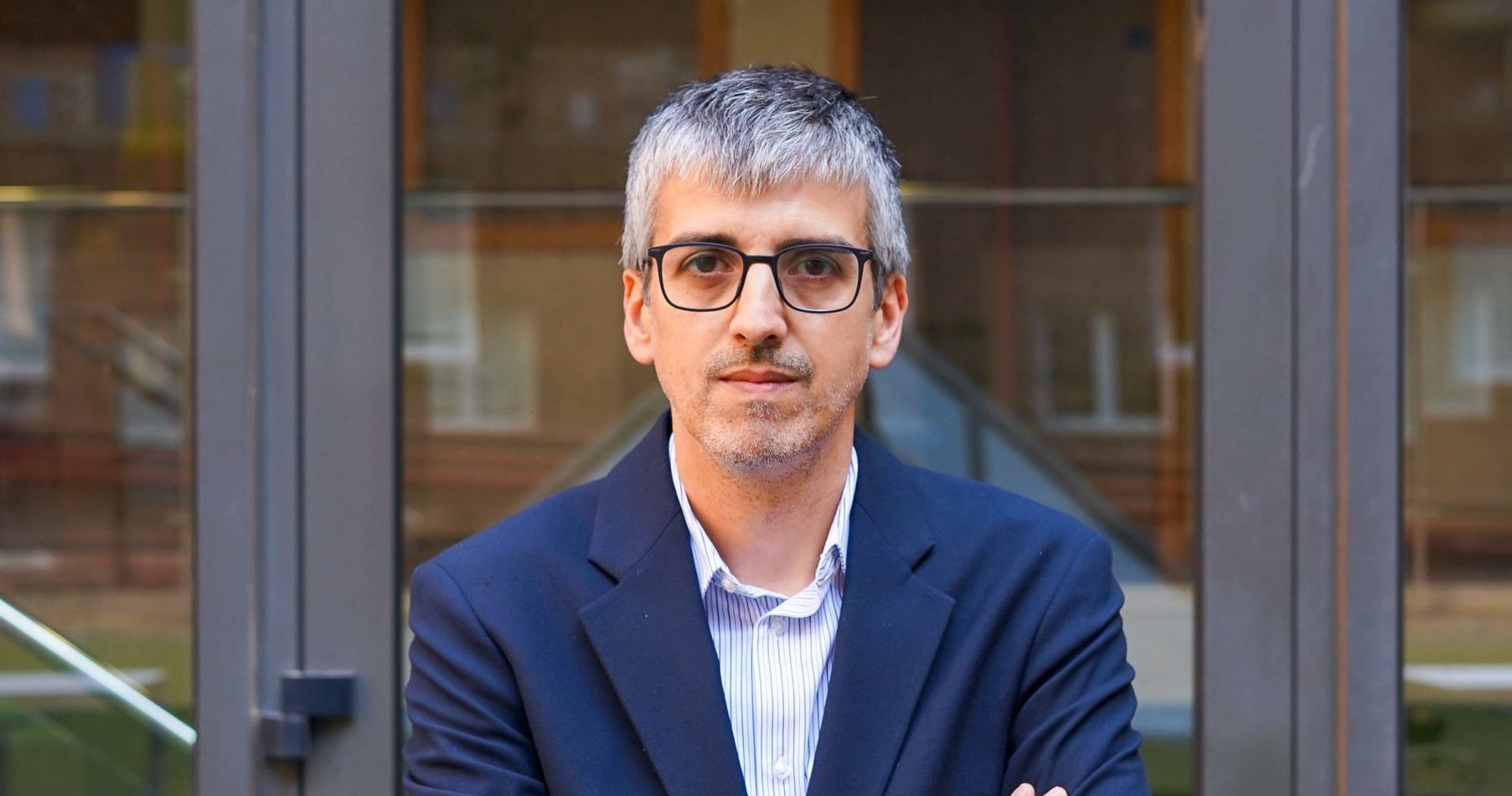Cette publication est également disponible en :
Français
With a name like this, making natural perfumery can easily look like destiny… Yet, Hiram Green’s philosophy is the outcome of a very pragmatic personal journey. For if the Canadian creator uses no synthetic ingredient, it is firstly out of habit: a self-taught perfumer, he learned his trade with the essential oils he could find in stores. Alone at the head of his own brand since 2013, he dedicates this 100% natural palette to making artisanal perfumery, composed and crafted from A to Z in his laboratory in Gouda, Netherlands. His perfumes, astounding with creativity and skill, have already received an Art & Olfaction Award in 2019 (for Hyde, in the Artisan category). They belie many clichés associated with natural perfumery.
How did you come to natural perfumery?
I grew up in Toronto where I studied Fine Arts. Then I moved to London with the idea of being an artist. I made a living working in a fragrance shop and found out I loved it. In 2003, I opened my own niche perfumes store but back then there was no name for it – the word “niche” meant nothing. My intention was to sell “perfumers’ perfumes”. Brands lead by creators. There were lots of old, small brands but there wasn’t this idea that the perfumer was just as important as the brand. Things have changed since; I was just a little bit ahead of my time… When I closed the shop a couple of years later, I tried to find a job in a perfume company, selling or marketing, but no one wanted to hire me. So, I thought, “I will start my own perfume company”. Except I didn’t know how to make it, and I had no money for school. So, I had to learn by myself.
How did you do that?
I went where I could get raw materials: in a health food shop that sold essential oils. That’s how I started learning the smell of rose, lavender and so on. I didn’t realize how bizarre it was, but when you have no one to teach you, you go where you can! At the time, there was only very little information available online. So, I did what I could.
So, it is out of necessity that you took the natural road from the very beginning…
I must also say that, as much as I loved perfumes, lots of them gave me headaches. And I had noticed that I didn’t have this problem with perfumes made of natural ingredients, even when they were very strong. It is still the case today: in the laboratory from where I am talking to you, I broke two bottles of Hyde this morning. The smell is very powerful, but my head isn’t spinning. So, I was trying to understand this phenomenon. I am not a scientist, so I can’t be too sure, but I think that when a perfume contains one or several molecules that don’t exist in nature, my brain doesn’t know how to process them – hence the headaches. That’s my theory (laughs)! So, it’s not about whether the ingredient is natural or synthetic: there are lots of molecules obtained by synthesis that can also be found in nature, and I can personally stand those very well.
How long did you take to teach yourself?
About ten years, until I was confident enough to start my own brand. I bought a Mandy Aftel’s book, it was a quite basic but a fantastic beginning. I had my essential oils, I memorized their smells, I combined them, compared them to the perfumes on the market that contained them… It was rather boring, actually! I think I could have learned much faster in a fragrance company. But at the same time, I would have thought it was impossible to make natural perfume. Because that’s what people in the industry have always told me.
It turns out they were wrong: natural perfumery is booming!
Indeed, things are slowly shifting, but there is still a lot of resistance in the industry against promoting natural perfumes. When I look at this sector, I feel like it is very separate from the rest, in a tiny box.
Why do you think that is?
Natural perfumes brands often promote themselves as being natural above everything else. They put down other companies, saying that essential oils are better for the environment, and that therefore, you should buy their perfumes. They don’t really try to sell the artistic dimension of their perfume, but only the fact that it is natural. And on the other side, mainstream or niche brands reply that natural perfume can’t smell good. I don’t want to be in this fight. If people want to buy my perfumes because they are natural, that’s fine, but they should buy them because they like their smell. Anyhow, we should never say that naturals are better for the environment. It’s not so cut and dry.
What do you mean?
Everybody knows that we should all be making much bigger steps for the environment. But natural is not the solution: essential oils are made through complex extraction processes, they are highly concentrated, and if you poured a whole bucket into a pond, well I don’t think the fish would be very happy! And then there is the carbon footprint of natural: it takes so many flowers to yield a few drops of essential oils, or a few grams of absolute! And all these flowers require water, care, lots of work and money… and that’s before they are shipped all over the world. So, the carbon footprint of a natural perfume is pretty high. We can tell lots of beautiful stories about natural ingredients, but that’s just one side of the coin.
It seems that “natural” perfumes carry along many approximations, if not counter truths.
Yes, and there are people who mean well but who are not doing good to anyone because their knowledge is too basic. In the United States, a natural products store told me they didn’t want to sell my perfumes because they contain linalool: it is a potential allergen – that’s why I have a legal obligation to list it on my packaging – but it is naturally present in bergamot, lavender and lots of other flowers! And among other things, this store sold lavender perfumes… That’s just to say that approximate knowledge can be harmful. But lots of natural perfume brands are emerging and that’s a good thing. Because no matter what one can think about their products or marketing strategy, the more variety there is, the more people will take interest in the subject, and the more things will fall naturally into place, but that will take another 5 to 10 years.
In the meantime, what can we do?
I think we need more regulation. We need governments or the European Union to say, “that is what natural is”. Especially in the US, where the current regulation is less strict than it is in Europe. Here, whether you are natural or not, your products must go through the same safety tests. And in my case, to back up my claim, I have to have an EU certificate to prove that all my ingredients are natural. It is very easy in the case of essential oils and absolutes, but sometimes fishy for isolates (isolates are molecules or groups of molecules obtained by “fractioning” an essential oil: it is a distillation process aiming at separating the oil into different parts or “fractions”). Most of those I use are obtained from natural raw materials, according to processes the EU considers “natural”. But in the United States, much more isolates or molecules are considered “natural”, for example some alpha irones (which can be extracted from iris, where they are naturally present, but can also be obtained by organic synthesis).
Some ingredients fall into a “grey zone”: it is the case of some of the molecules you mentioned, which can be obtained through synthetic chemistry, but can also be distilled from natural products. Some brands boast about not using them at all. What do you think?
When brands explain they don’t use molecules extracted from a natural raw material, it’s their choice, but for me it’s stupid. The reason why these molecules require so much more certification is that they are primarily intended the food industry. But for me, they are natural. If we take the example of a linalool isolated from a lavender essential oil, it is obtained the same way that a lavender flower is distilled. It’s just that science today allows us to better monitor heat and pressure so we can extract only one of the molecules contained in the oil. So, when people say, “we don’t use these molecules”, I want to say, “how are they different from an essential oil?”. Having said that, we can question the environmental dimension of these molecules. If you distil a rose to obtain just one molecule – when rose contains hundreds of them – the yield is extremely low, and the final product is very expensive. Why persist on using it when one can have the same molecule, obtained through synthesis, for way less money?
You, for one, persist on using them. So yes, why?
There are synthetic equivalents to some of the ingredients I use, but indeed I choose to use only naturals. I wish I had a good answer, but my reasons are very subjective and personal. There is something wonderful about working with these ingredients, so precious, so expensive… When I manipulate them, I am aware that someone made them with their hands. It gives them a certain energy. Something intangible that I cannot really describe, nor prove that it exists, but that, for me, gives my perfumes something very particular. And I like to think that this is how people who like them feel, too.
In the end, it seems like it’s the “artisan” dimension of your raw materials that matters… As if it echoed your own approach of perfumery!
We are all so used to buying and using industrial products, be it perfumes or IKEA furniture. Yet, I think that people can tell when a product is handmade. And not in a negative way, because it would be flawed! See how an Art Deco piece of furniture, for example, can be made by hand and perfect. I think that this can have an equivalent in perfume.
—
- Hiram Green website : www.hiramgreen.com
- Follow Hiram Green on Instagram : www.instagram.com/hiram_green
Natural perfumers – Summary
- Introduction, by Jeanne Doré
- Hiram Green: “If people want to buy my perfumes, it should be because they like their smell“
- Caroline Dumur: “Without synthetics, you have to learn to formulate differently”
- Delphine Thierry: “To formulate 100% natural perfumes, I set aside almost everything I’ve learned so far”
- Isabelle Doyen and Camille Goutal: “For us, 100% natural is a perfumer’s challenge rather than a marketing position.”
- Serge de Oliveira: “Most clients want natural perfumes that are just like conventional fragrances”
- Irène Farmachidi: “In 100% natural perfumery, we formulate by using paraphrases, it’s like a game”
- Mandy Aftel: “Mixing a bunch of natural ingredients in a bottle does not produce a perfume”
- Our selection of natural perfumes
- The many facets of natural perfumery
- Natural perfumes: conclusion and a few thoughts








Comments